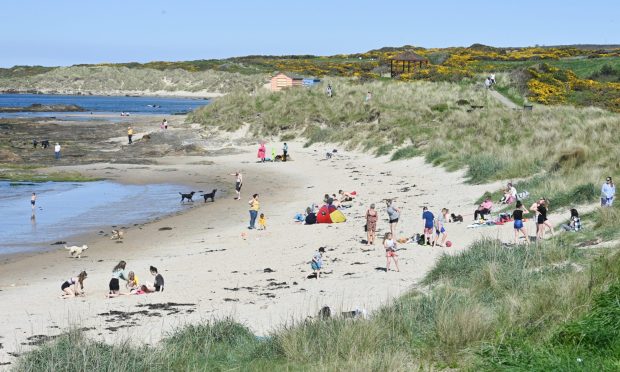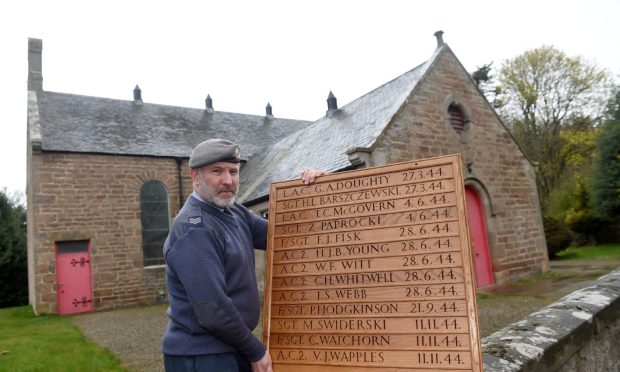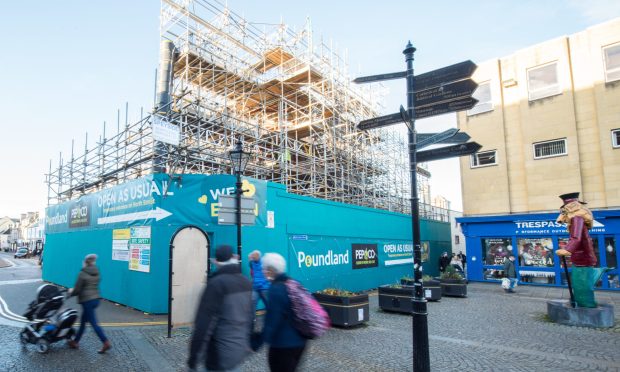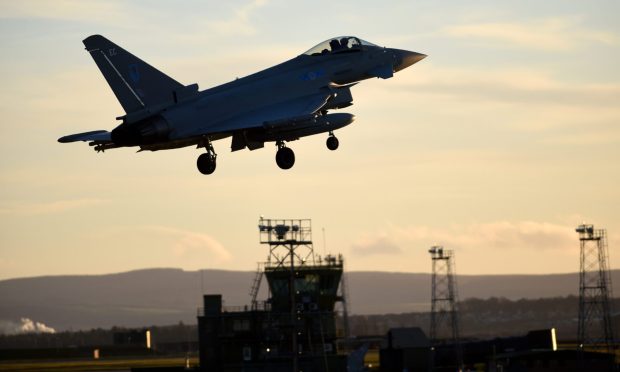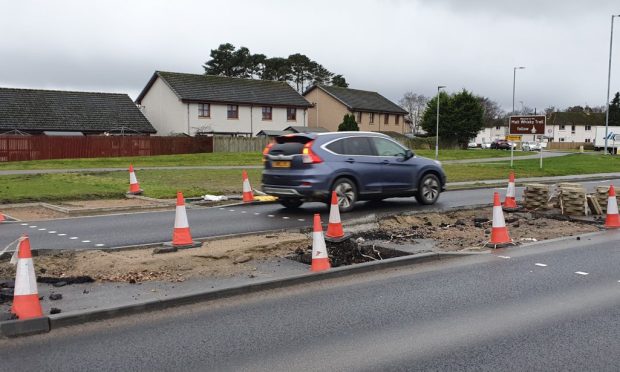Farmers and hauliers have voiced their fears amid a row over whisky production.
Construction sites, food factories and high streets are mostly dormant after instructions that non-essential work should cease.
However, production at some whisky distilleries has continued despite concerns from workers they are putting themselves at risk for the industry that is worth £5.5billion to the UK economy.
Yesterday the Scottish Government stressed that distilling that is not required to meet immediate demand “does not need to take place at this time” – while praising work done by the industry to produce alcohol for hand sanitiser.
However, the Scotch Whisky Association argues the government has made clear that all food and drink production, including alcohol, is an “essential service” – while adding that production has been scaled back amid strict compliance with safety guidelines.
NFU Scotland, the farmers’ union, has warned of the effects a shutdown could have on farmers.
A spokesman sad: ““If the flow of grain stops then there will be significant implications at harvest time.”
And some hauliers are worried for their survival if the industries they work for grind to a halt.
Meanwhile, union GMB Scotland has called for a pause on malt production while accepting hand sanitiser contributions should continue.
Moray MSP Richard Lochhead is concerned that distilleries continuing to operate could put pressure on other industries to remain open to meet the demand.
He said: “Even where companies believe what they are doing is essential, not every post within that company falls under that definition and these workers could be sent home.
“For every distillery that remains open to simply produce whisky to be taken to the warehouse for three years then the rest of the supply chain is under pressure to keep working also.”
Distilleries that have shut production include Glenfarclas on Speyside, Whyte and Mackay-owned sites across the north, Tomatin near Inverness and Bowmore on Islay.
Moray MP Douglas Ross said some sites that have remained open have scaled back production by as much as 50%.
The whisky industry has been a major contributor to increasing hand sanitiser stocks with distilleries turning over production to the supply.
The Scotch Whisky Association says distilleries are expecting to produce about 50 million bottles of hand sanitiser over the next two months to help protect frontline workers against contracting coronavirus.
The industry body has stressed that it is not “business as usual” while describing companies as wanting to contribute to the recovery of the economy once the lockdown is over.
A spokesman added: “Those companies which continue to operate are doing so only with significantly scaled-back operations and in rigorous compliance with Scottish Government guidance, which says that companies can continue to operate if strict social distancing is in place.
“The government has also made clear that food and drink production, including alcohol, are essential services and that manufacturing should continue where appropriate safety and social distancing protocols can be put in place in order to re-stock supermarkets and off-licences that remain open during the crisis.”
Industries that rely on whisky have raised concerns in recent days about a further potential downturn in demand.
The Road Haulage Association has warned of some HGV firms fearing for the survival of their business as cash flow from customers to transport goods dries up.
Meanwhile, farming representatives said crops had already been planted in anticipation of demand later in the year with no time to now change decisions if demand drops off.
Willie Thomson, NFU Scotland’s combinable crops chairman, said: “The interconnected nature of Scottish agriculture means that any interruption to the production of whisky has immediate impacts on livestock, through loss of the co-products that go into animal feed and on the flow of cereals.
“Malt from maltings and distilling wheat needs to be cleared from commercial stores ready for the inflow of new crop at harvest time and, by late autumn, farm stores need to be cleared of grain for the housing of livestock for the winter.”
Mr Ross described the concerns from whisky employees and the industry as a “crucial matter” that he would continue to monitor.
He said: “This is not just about producing whisky which then matures for several years – a number of distilleries are also producing alcohol for hand sanitiser and there is an entire supply chain that needs production to continue with by-products used as animal feed by farmers and energy plants.
“I fully understand the concerns staff have raised, but I know the industry has listened to these and has put in place several measures to protect the workforce while ensuring the industry is still in a viable position to be an important employer after we beat the virus.”
The Scottish Government’s economy secretary Fiona Hyslop met the Scotch Whisky Association earlier this week to discuss the issue.
Businesses have been told to “act responsibly” to safeguard the country’s health and economy while being able to demonstrate they have scaled back activity to the “minimum necessary”.
A Scottish Government spokeswoman added: “Some distillers are engaging in gearing up to produce alcohol for hand sanitisers, which is clearly essential. Other key staff, who play an important role, continue to work on care and maintenance of workplaces which can’t be closed completely.
“But we are absolutely clear that the whisky industry should be significantly scaling back production and many of them are.
“While only food is designated as part of our national critical infrastructure, we continue to discuss and explore with the industry what is needed to enable continuing domestic supplies in the drinks sector.
“Distilling of product that is not needed to meet immediate demand does not need to take place at this time.”



